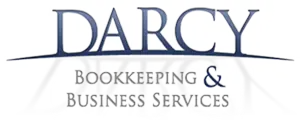


If your business has to pay legal fees, you might be wondering if you can deduct them from your taxable income. In the last year, 1.8 million taxpayers claimed deductions on legal expenses – so the short answer is yes. However, the Australian Taxation Office (ATO) has specific guidelines on which legal fees are tax-deductible and in what situations. In this blog post, we’ll explore the rules for individuals and businesses. We’ll also provide practical advice on how to properly claim tax deductions for your legal bills.
Please note that this is general advice only. If you need specific advice on your own situation, it’s always best to talk to a tax professional. Get in touch at 1300 728 875 or fill out a contact form to get started.
The ATO allows deductions for legal expenses incurred while earning assessable income. This includes:
Generally, tax-deductible legal fees are those directly related to:
Personal legal costs are not tax-deductible and must be kept separate from business-related expenses. While approximately 42% of legal fees are eligible for tax deductions, knowing which ones apply to you and your business can significantly impact your tax return. By correctly identifying and claiming eligible legal expenses, you can reduce your taxable income and potentially increase your refund. Just as important is making sure you are complying with tax laws to avoid legal issues with the authorities.

Understanding which legal fees are tax-deductible can save you money and prevent mistakes when filing your tax return. The ATO differentiates between various types of legal expenses, allowing deductions for some while not allowing others.
Lawyer fees incurred for business purposes are generally tax-deductible, as they are considered necessary expenses to maintain, operate, or expand a business. Common examples include costs incurred for:
There are also certain legal costs that are deductible under special provisions. For instance:
Some legal fees incurred through business are not tax-deductible, such as:
Self-employed individuals can also deduct many legal expenses as part of their operational costs incurred, particularly those tied directly to income production. For example:
Personal legal fees, such as those related to divorce proceedings, drafting wills, or personal injury claims, are not tax-deductible in Australia. For individual taxpayers, legal fees can only be considered deductible if they are directly linked to generating income. This generally includes:
Some legal expenses, although typically not deductible due to being capital or private in nature, can be deducted under specific tax provisions, such as:
The rules can be complex and confusing so if you’re ever in doubt, make sure to consult with a tax professional. It is always best to make sure you're claiming deductions correctly and in compliance with current tax laws.

At Darcy Bookkeeping & Business Services, we have a highly experienced team of tax specialists who can help you with your taxation needs. Drop us a line or call 1300 728 875 to get started.

Reporting legal fees on your tax return involves careful documentation. You must classify the expenses correctly, distinguishing between deductible legal fees and non-deductible personal legal costs incurred.
Business owners or self-employed individuals typically report legal fees as part of their operational expenses.
Individual taxpayers must attach their legal fee claims under specific income-related expense categories.
While it may seem like it would be cheaper and easier to work out legal fee deductions on your own, people who use professional tax services are 37% more likely to successfully claim tax deductions for legal expenses.
A qualified accountant or tax consultant can help you by:
One of the most common errors in trying to deduct tax on legal fees is people attempting to claim personal legal expenses as business deductions. If you attempt this or even do it mistakenly and your tax return is audited, you could receive penalties or fines.
Another mistake is when deductions are not directly related to income production but are in fact capital expenses.
Failing to keep accurate documentation and proof often leads to claims being denied.
Legal fees being claimed not within the year they were incurred. If the legal process spans multiple tax years, they must be organised correctly and claimed in the correct periods.
Figuring out all your tax deductions can be so time-consuming but failing to claim eligible deductions can significantly impact your business's bottom line. By working with Darcy Bookkeeping & Business Services, you can ensure you're taking advantage of available tax deductions while staying compliant with tax laws. If you need assistance managing your legal expenses, send us a message or give us a call on 1300 728 875 to find out how we can help keep your legal bills organised and maximise your tax return.
